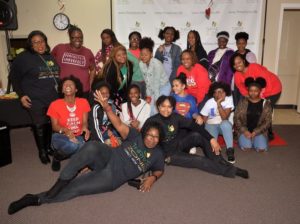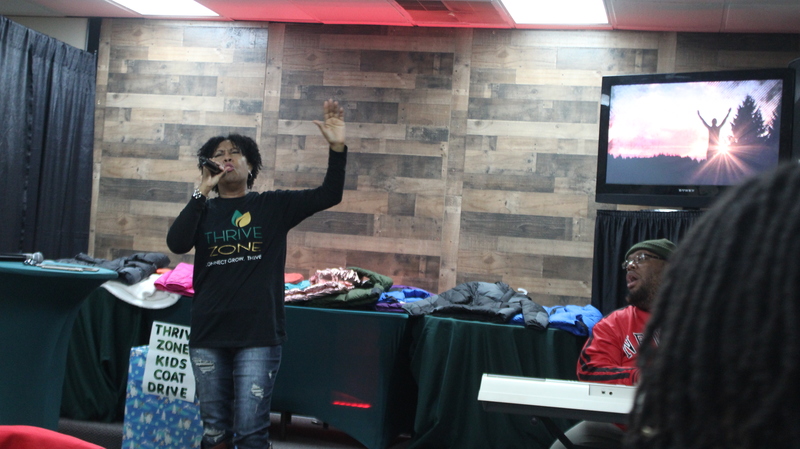The THRIVE Zone Church, led by senior leader, Denise Williams, was destined to come to life.
The mission of The Thrive Zone is to guide people into a THRIVING relationship with Jesus Christ and each other. It’s clear that the team aims to execute the mission in everything it does.
Born in a quaint southern town in Georgia, Denise grew up in a “church family” and began singing in the church choir, which developed a voice that she uses today to empower others. Her musical involvement kept her interwoven in the congregation, and as she got older, her voice moved from the choral group to behind the podium. Unbeknownst to Denise, it was there on children’s Sundays acting as a stand-in preacher that she was transforming herself into a phenomenal speaker.
Pastor Denise shares her thoughts toward ministry and her calling, “It brings me fulfillment and I’m glad I discovered it. My calling is to add value to people by intentionally finding a way to serve them and make a difference in their lives.”
Her gifts and natural talents led her to become a John Maxwell Certified Coach, Speaker, and Trainer, in addition to being a popular women’s empowerment keynote speaker.
Set Free to Guide Others to Freedom
 Pastor Denise guides others through their own deliverance having overcome past abusive relationships and healing from emotional pain.
Pastor Denise guides others through their own deliverance having overcome past abusive relationships and healing from emotional pain.
As a Believer in the gospel and led by divine revelation, Denise was moved to start The THRIVE Zone Church in Stone Mountain, Georgia. Her heart to empower the community, prolific skills as a Leadership Coach, and the ability to touch people through her gifts all come into play. There is an atmosphere of excellence that sets The THRIVE Zone apart. These standards have made a major impact within the community in less than a year’s time.
Along with The THRIVE Zone’s continued growth, there have been lessons learned. Pastor Denise shares:
“One of the most memorable lessons I have learned during my first year is that programs must be developed. Our new church plant has done well with evangelism, but not as well with implementing our Growth Track program. I have learned it’s important to be flexible when implementing these types of programs. You may have to change from weekly to monthly or perhaps quarterly classes. The goal is for the church family to complete the classes, even if it takes longer than originally planned.”
Onward and Upward
 Since its launch on April 7, 2019, The THRIVE Zone Church has adopted an entire elementary school in the Dekalb County school district. In doing so, the church provides:
Since its launch on April 7, 2019, The THRIVE Zone Church has adopted an entire elementary school in the Dekalb County school district. In doing so, the church provides:
- back-to-school uniforms, undergarments, sock and shoes to 14 students from 8 families,
- donated 60 book bags filled with school supplies
- hosted THRIVE Fest, a safer alternative to trick or treat for families with food, games, candy & prizes
- provided 29 winter coats to families in need
- hosted a Thanksgiving Giveaway and delivered 10 food baskets, including turkey and fixings to families in the Stone Mountain community
- hosted a Self-Love Experience for 19 teen girls
- launched a Ministers Training class
As the Senior Leader at a young church, Pastor Denise shares her advice for new, young Pastors with an emphasis on staying focused:
“You are going to make mistakes. Do not allow the fear of making mistakes or the fear of failure to paralyze you from stepping out in faith and contending for your region. Remember you are not perfect. Do not let your mistakes define you. Do not let mistakes steal your motivation and joy in fulfilling your calling. Acknowledge your mistake and drive forward. Stay focused on your assignment!”
As the Thrive Zone celebrates its one year anniversary, the church looks forward to continued expansion and the ability to reach out and make an even greater impact over the next few years. The Church is grateful for its church family and donors who continue to assist in helping it reach its mandate for the Stone Mountain region.
For more information about The THRIVE Zone Church, you can visit its official website www.thrivezone.life or call 1-470-543-0358 for additional inquiries.




